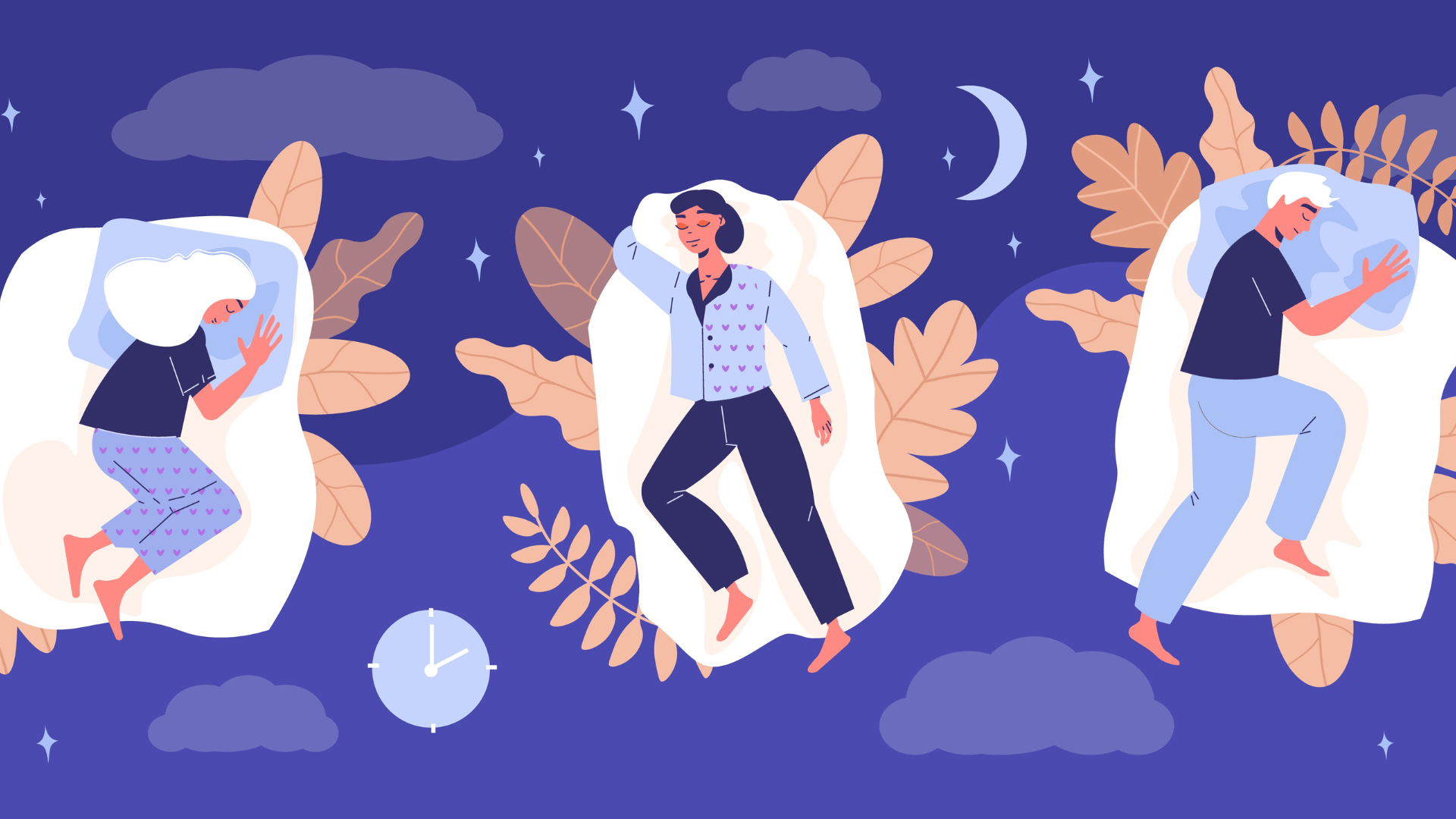

Eat to Sleep and Sleep to Eat
We’re all familiar with the phrase you are what you eat, but it’s also accurate to say you’re only as good as quality of sleep you get. Getting enough high-quality sleep is important for health, but a growing number of research studies are showing a relationship between what we eat and how we sleep. Our diet can influence our quality of sleep and getting enough sleep can help us make better eating choices. We sat down with our in-house health and nutrition expert Dr. Emily Fritz to learn more about how diet and sleep can be related.
Put down the afternoon Caffeine
Now we know coffee isn’t food, but it is a daily part of the diet for almost 75% of Americans. Caffeine, is the active compound found in coffee, tea, chocolate, and some soft drinks, is a well-known stimulant that can disrupt sleep patterns. Dr Fritz said, “Caffeine works by blocking the effectiveness of a key molecule in our brain called adenosine that makes us sleepy as the day drags on. The sleepiness that builds throughout the day is called sleep pressure. Consuming caffeine late in the day can make us feel alert, which is the opposite of what we want late in the day when we should be winding down.” Consuming caffeine in the afternoon hours can significantly diminish sleep quality, but it’s important to remember that the effects of caffeine can vary greatly among individuals, depending on their sensitivity and tolerance. Whenever you hit a wall in the afternoon, just remember that a boost of caffeine could negatively impact your sleep.
Keep it light before you turn out the lights
Eating heavy, rich, or fatty foods close to bedtime can lead to discomfort and indigestion, making it harder to fall asleep. Meals high in fat may also slow down digestion and can cause stomach discomfort during the night. Dr. Fritz continued, “The recommendation is to avoid large meals within 2-3 hours of your bedtime. Studies show that large meals make it harder for us to fall asleep, decrease sleep quality, and might also result in us waking up more times during the night.” Even though large meals can be disruptive to our sleep, there is growing evidence that a small nutrient-dense snack of around 150 calories within an hour of bedtime might be OK and can benefit sleep by keeping our blood glucose steady and providing fuel for our muscles. Some good choices include a handful of nuts, a cup of yogurt, or a snack like Rivalz with protein, fiber and low in net carbs, fits the bill for a nighttime snack that might help keep you full through the night without disrupting sleep.
Rethink that “drink”
While alcohol may initially act as a sedative making you feel like you fall asleep more easily, it significantly impairs the quality of sleep and something called sleep architecture. Sleep architecture represents cycles of non-rapid eye movement and rapid eye movement sleep. Alcohol can disrupt these well-balanced cycles, leading to fragmented, non-restorative sleep. Dr. Fritz noted, “Tracking your sleep with wearable technologies can give you a tangible way to see how alcohol affects you. Even if you don’t feel like you drank very much there can be noticeable changes to your sleep cycles that might motivate you to make different decisions about when and how much you drink next time.” Alcohol consumption, especially in larger quantities, can also exacerbate snoring and sleep apnea symptoms.
Think twice about that late night dessert
The relationship between sweets and sleep is a two-way street – getting adequate, high quality sleep of around 7 hours per night can help our body manage blood glucose and encourage better eating choices that are low glycemic index (don’t spike our blood glucose) to achieve higher quality sleep. Research also suggests that getting too little sleep can increase our risk for chronic conditions like type II diabetes. Eating sugary foods or refined carbs before bed can lead to a spike in blood sugar, followed by a rapid drop during the night, potentially leading to awakenings and difficulty returning to sleep. Research is uncovering all of the ways that carbohydrates can impact sleep, but recent science confirms that a steady blood glucose can help support sleep and getting enough sleep is imperative for long term health.
Benefits of Balanced Diets and Specific Nutrients:
A balanced diet, rich in fruits, vegetables, whole grains, and lean proteins, can provide a lot of different health benefits, and one of those is better sleep. A usual diet that is rich in healthy sources of fiber, fat, and protein have been associated with improved sleep quality. And not coincidentally, adequate, high-quality sleep is associated with better health and eating choices. Dr. Fritz said, “Other nutrients have been linked to improved sleep including magnesium (found in leafy greens, nuts, and seeds), and the amino acid tryptophan (found in source of lean protein like turkey, yogurt, and milk), which is a precursor to the sleep-regulating hormone melatonin.”
Understanding that sleep and diet are connected can help us make informed decisions, especially in the hours leading up to bedtime. If you’re struggling to get a good night’s sleep, it’s important to look into what and when you’re eating as it can unlock some opportunities to achieve more restful nights. A well-balanced diet not only supports overall health but can also contribute to more restorative sleep, which we all know can have lasting effects on our health and quality of life.
This article has been fact-checked by Dr. Emily Fritz. About Dr. Emily Fritz:
Dr. Emily Fritz earned her M.S. and Ph.D. at South Dakota State University in Exercise, Nutrition and Food Science. Emily joins Rivalz from her role as VP of Scientific Affairs at the Beachbody Company and is passionate about advancing scientific discovery for companies leading the way in human health and nutrition. In addition to her commercial work, she has authored, presented, and collaborated on many research studies ranging from large National Institutes of Health (NIH) studies to leading student research projects during her time as an Assistant Professor at Simpson College in Indianola, IA.
